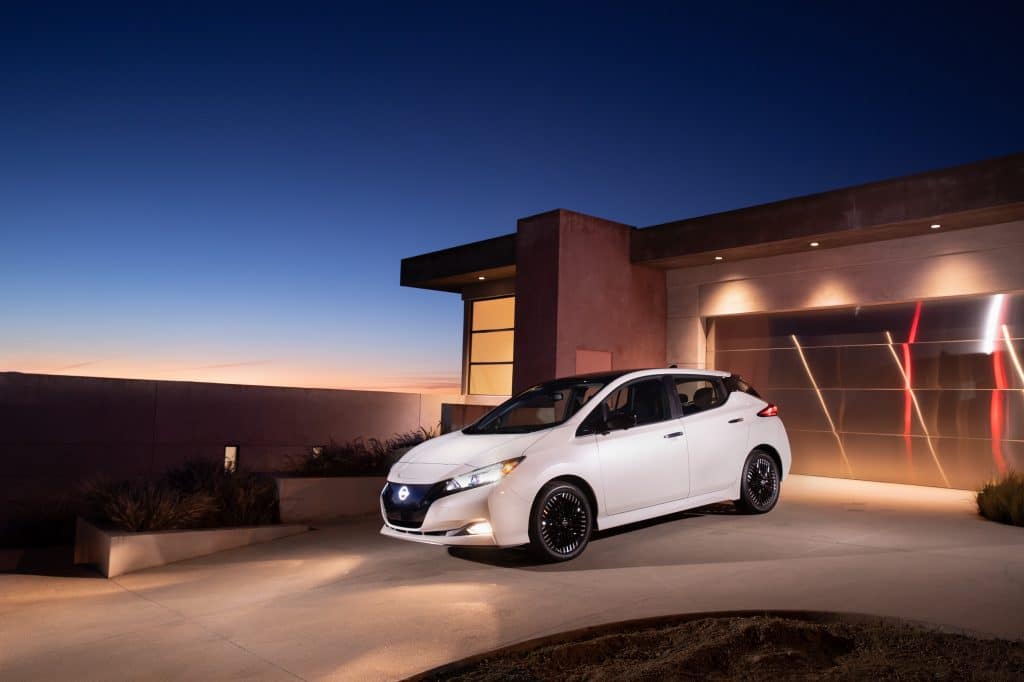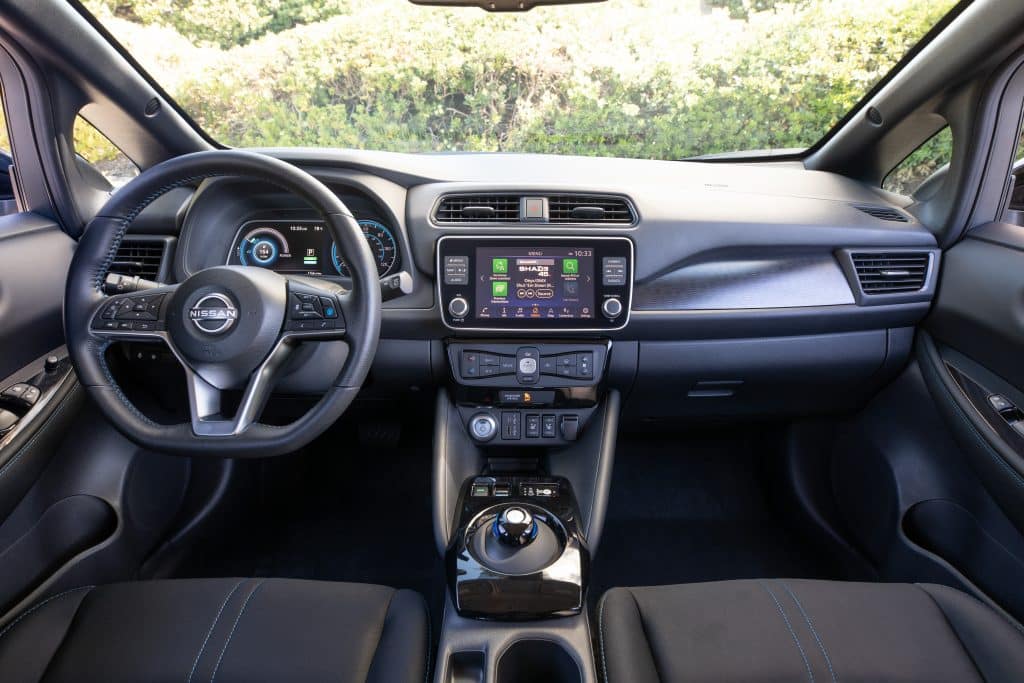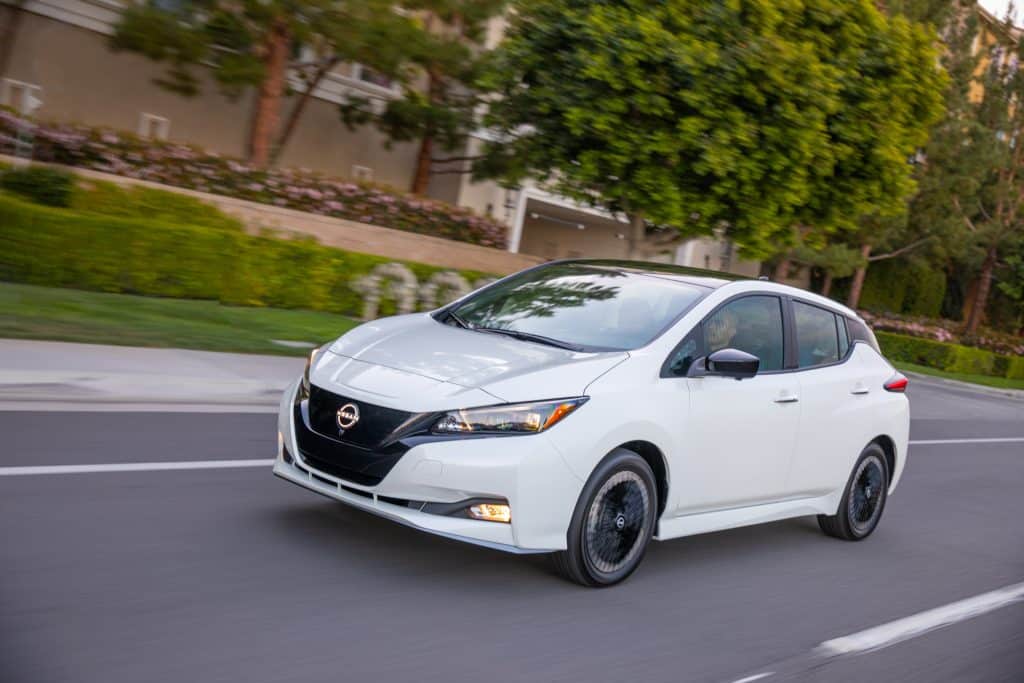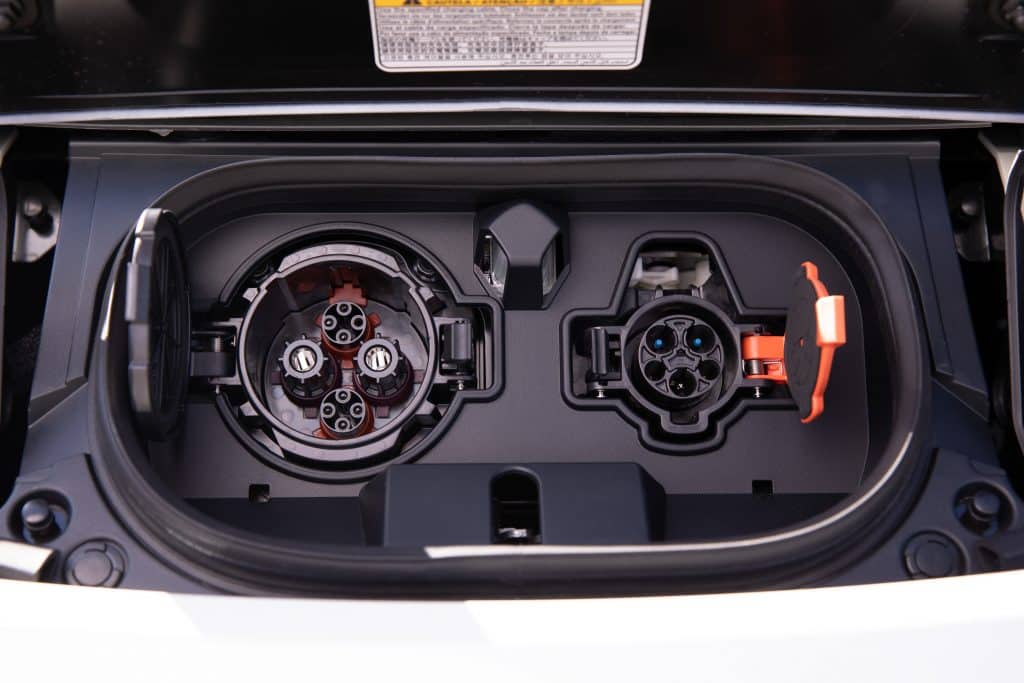In 2010, Nissan introduced its first mass-market all-electric vehicle, the Nissan Leaf. It was designed to compete with hybrid and full-electric cars like the Toyota Prius and Chevrolet Volt in the booming small car market of the late-aughts/early 2010s, giving Nissan an early-mover advantage. Today, the Leaf in our review continues to be a popular and affordable option for drivers with low-mileage needs.
Nissan Leaf EVU Hot Take
Pros:
- Affordable and economic EV motoring
- Inoffensive styling and brand image
- Usable cargo space
Cons:
- Lacks power compared with some rivals
- 212 mile maximum range lags behind many modern EVs
- Won’t turn any heads
Nissan Leaf Exterior, Design and Packaging
The Nissan Leaf is a compact hatchback that seats 5 passengers and has a futuristic design that is commonly associated with EVs. When the Leaf was first introduced in 2010, this unique look was necessary to set it apart from other vehicles on the market. However, the second generation that debuted in 2017 looks more similar to traditional gasoline-powered cars.

For those who are unfamiliar with the Leaf, it bears resemblance to Nissan’s affordable compact hatchback, the Versa, in the US market. Despite being a hatchback, it offers plenty of cargo space in the rear, but there is no front trunk, as the powertrain hardware occupies the engine bay, which it shares with Nissan’s gasoline-powered vehicles. Interestingly, the charging port is located under the Nissan emblem at the front of the vehicle, with a lift-up cover to protect it.
Nissan Leaf Interior, Features and Tech

Compared to other compact cars of its time, the original Nissan Leaf interior tech was considered innovative, featuring a mix of physical and digital gauges and an infotainment screen. Although it lacked features like Apple CarPlay and other smartphone interfaces, it did offer Bluetooth pairing.
Today’s Leaf, on the other hand, comes with all the tech you would expect in a modern EV, including wired Apple CarPlay and Android Auto, and a companion app to control various functions. The Leaf also offers advanced driver assistance features like lane keep assist, setting it apart from many other budget vehicle options. While it may not compete with higher-end electric cars like the Tesla Model 3 in terms of hardware, its features tech is on par with most other compacts.
Nissan Leaf Driving Experience

The current generation of the Nissan Leaf benefits from the naturally low center of gravity created by its battery pack, despite not being powerful. While the first-generation model utilized a 107 HP motor on the front wheels, the current model increases that number to 147 HP. With the ability for one-pedal driving, the Leaf can bring the car to a true stop, offering more fun than a typical commuter car. While it may not win many drag races, the Leaf is a solid performer for its class.
Nissan Leaf Range and Charging

Both the first generation and current generation of the Nissan Leaf support AC and DC charging, but their range numbers have fallen behind the competition. Although Nissan made slight improvements to the battery packs and range numbers throughout the first generation’s production, they still only offered around 75-85 miles of range. While this was typical for the time, the current gen model’s offerings still don’t necessarily impress. The 2023 S trim has a 40 kWh pack and offers 149 miles of range, while the upper SV trim has an upgraded 212 horsepower motor and 62 kWh battery. This setup extends the range to around 200 miles. It’s not long-haul range, but the Leaf is designed for use around cities, not as a road trip car.
Nissan Leaf Final Thoughts and Pricing
The first and second generation Nissan Leafs remain a value proposition for electric driving. The Leaf, in our review, was highly innovative at its outset and has remained a quirky part of Nissan’s U.S. lineup. The current-generation Leaf boasts more robust power and range, upgraded tech, and a modern aesthetic. Nissan doesn’t aim to be a world leader with this car, instead offering a value play for those who don’t need long range or luxury. It is a normal economy compact that happens to be electric and a great buy if you don’t care about cars and don’t need to take long road trips. The base S model starts at $29,135, while the upgraded SV Plus model comes in at $37,135.
Images courtesy of Nissan USA

